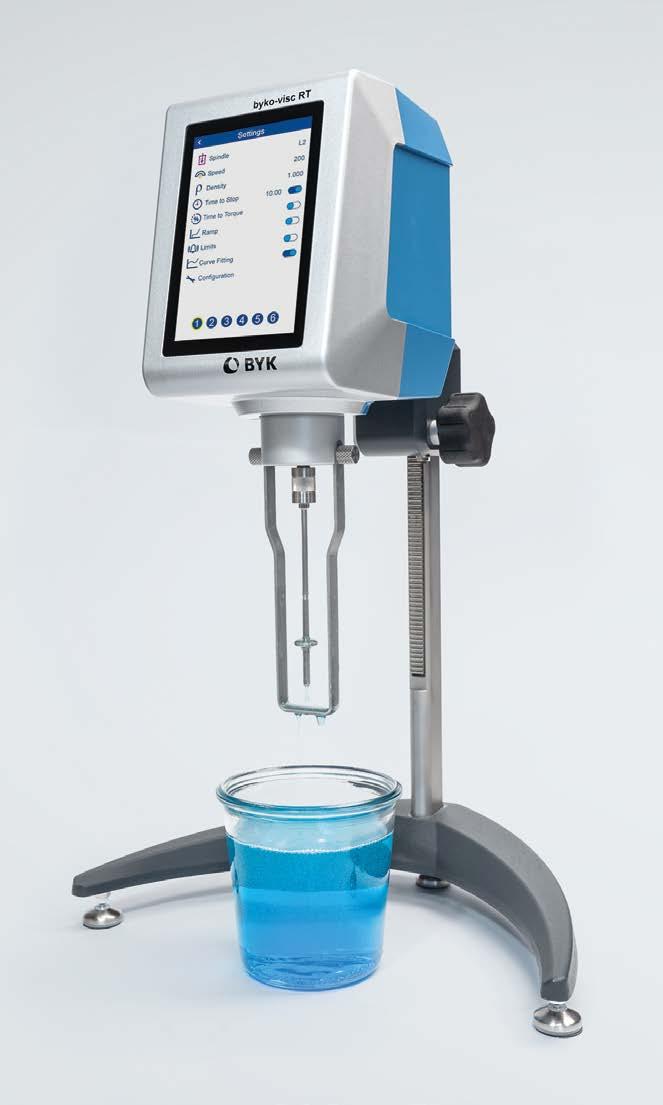
6 minute read
SPECIALIZED TRAINING
The Advantage of Training Staff in a Targeted Way: More Passion and More Efficiency in the Company
Interview with David Peluso
PVD Sputtering Technician and ipcm® Academy trainee
David Peluso
We have decided to include in this interview series a technician who is currently attending the spring session of the Industrial Surface Finishing Process Technologist training course organised by ipcm® Academy: David Peluso, currently in charge of his company’s PVD sputtering plant. As he comes from a completely different sector than coating, we thought it would be interesting to understand how he assesses the training path he has just undertaken.
How did you learn about the Surface Finishing Process Technologist course? Were you looking for specific training or did you learn about it through an advertisement (newsletters, social networks, etc.)?
I found out about this course through the suggestion of my partner, who works in the same sector: I was looking for courses in the surface treatment field that could officially certify my expertise in the industry.
In your experience as a technician in charge of a coating plant, have you had any difficulties in identifying such a specific vocational training path?
No, I have not. I was simply not aware of the existence of such recognised training courses. So, as soon as I heard about this, I immediately decided to register for certifying my skills.
Did you think you had gaps to fill or did you choose a vocational course to update your skills?
Both. I work with liquid-based paint products and I wanted to gain a more comprehensive knowledge of all the techniques used at an industrial level, in order to expand my skills in terms of personal growth with a view to professional development.
In September 2020, the Lombardy Region officially recognised the professional role of Industrial Surface Finishing Process Technologist, previously unrecognised. At the end of the training course and after the final examination, you will obtain this certification. Why did you choose this training path?
I entered this industry coming from a completely different sector. Therefore, I felt the need to have the professional skills acquired in my experience in this new career path recognised.
How well do you think you will be able to integrate the skills you are acquiring during the course with your daily work?
Very well. I am acquiring very technical, industry-specific knowledge and no information is useless. Moreover, the competence and experience of the lecturers are an excellent point of comparison with the reality of our own work.
The first session of the course is halfway through. What are your initial feelings and what do you expect from the second half?
I am very satisfied with the topics that have been covered so far but, above all, I have been pleasantly impressed by the thoroughness of the notions explained. I expect to continue seeing seriousness and professionalism, which I believe are the strengths of this course.
Do you find it difficult to balance the time you are devoting to professional training with your work within your company?
Yes and no. Clearly, it all depends on one’s own company’s willingness to favour any absences related to the attendance to the course – which in any case is also beneficial to the company itself: I believe that qualified employees are also more motivated and efficient.

© ipcm

So far, which lesson have you found the most in line with the work you do on a daily basis?
Certainly, those on surface preparation and the application of liquidbased paint products, because I use precisely this type of coating.
Conducting the ipcm® Academy training course in hybrid mode was a decision driven by the desire to promote versatile training that is truly close to the needs of individuals. How do you rate it?
It certainly helps those who cannot be physically present at all the lectures. I also find it very stimulating to have included special lectures at a few companies’ premises: this is a good way to make the trainees feel more involved and give them a chance to see other factories’ reality first hand.

Would you recommend the ipcm® Academy course? If so, do you think that some basic knowledge in the field is required, or would you also recommend it to someone with no experience in our industry?
Yes, I am very pleased and I will therefore gladly recommend it. Clearly, those who already have some basic knowledge in the field will find the topics covered easier to grasp, but this does not mean that it is exclusively intended for those with experience. On the contrary, I believe that it can be considered as a real training path for those who are less experienced. Knowledge is a great tool to improve oneself.
© ipcm
© ipcm
Some moments from the last session of the ipcm® Academy courses.
The next session of the course will include a new module dedicated to Coil Coating
One of the new features of the next section of the ipcm® Academy course will be a module dedicated to the coil coating process to be taught by Sergio Bianchi, one of the leading experts in this field. We took the opportunity to ask him a few questions to understand how this new module will fit into the already established training pathway and how he plans to structure his lessons.
The coil coating module will be one of the new features of this year’s course. How do you plan to structure it and how do you think it will fit into the already established training pathway?
Coil coating is a unique process for several reasons: speed of application, curing time, processed square metres, and so on. Although it is an established technology, it is not as well known as “traditional” painting processes, yet. The module offers the possibility of approaching this technology and its appealing peculiarities and it integrates perfectly into the training path by giving visibility to a technologically advanced process, as well as enriching the knowledge of those interested in the world of industrial coating. It will include an extensive classroom session, with the presentation of the different process and product steps, and a visit to a production facility, with both a liquid and a powder coating line. A visit to the laboratory will conclude the day, with the opportunity to see the characteristics of both coatings and end products first hand.
For those approaching the world of coil coating, are there specific vocational training courses available or is it necessary to train in the field?
I believe that nothing can replace the value of training in the field, and coil coating is no different from any other professional sector. Among “listening”, “seeing”, and “doing”, the latter plays the most important role. Mentorship and learning by direct experience are the most significant parts of any professional training pathway, not only to acquire skills but also and above all to experience the passion for one’s own job. At the moment, there are no structured specific training paths: although a few training courses are offered, they have not yet been channelled into a single path. From this perspective, the new module on coil coating can – and should – be a privileged opportunity for the sector to make use of an organic, specific vocational training pathway, bridging a gap from which this industry has been suffering.
How do you assess the nationally and Europe-wide recognised certification for Industrial Surface Finishing Process Technologists, which did not exist before?
It is an important milestone and it enhances the significance of this professional role, as well as rewarding the work done to define its profile and have it recognised. I am convinced that every sector needs qualified, well-trained people. Any effort in this regard is always rewarded, although often in an unquantifiable manner. At the same time, I believe that it is equally important to consider it just as a first step, because this professional role evolves over time together with its related skills and expectations, and this training course will have to be continuously updated in order to keep up with the times.










